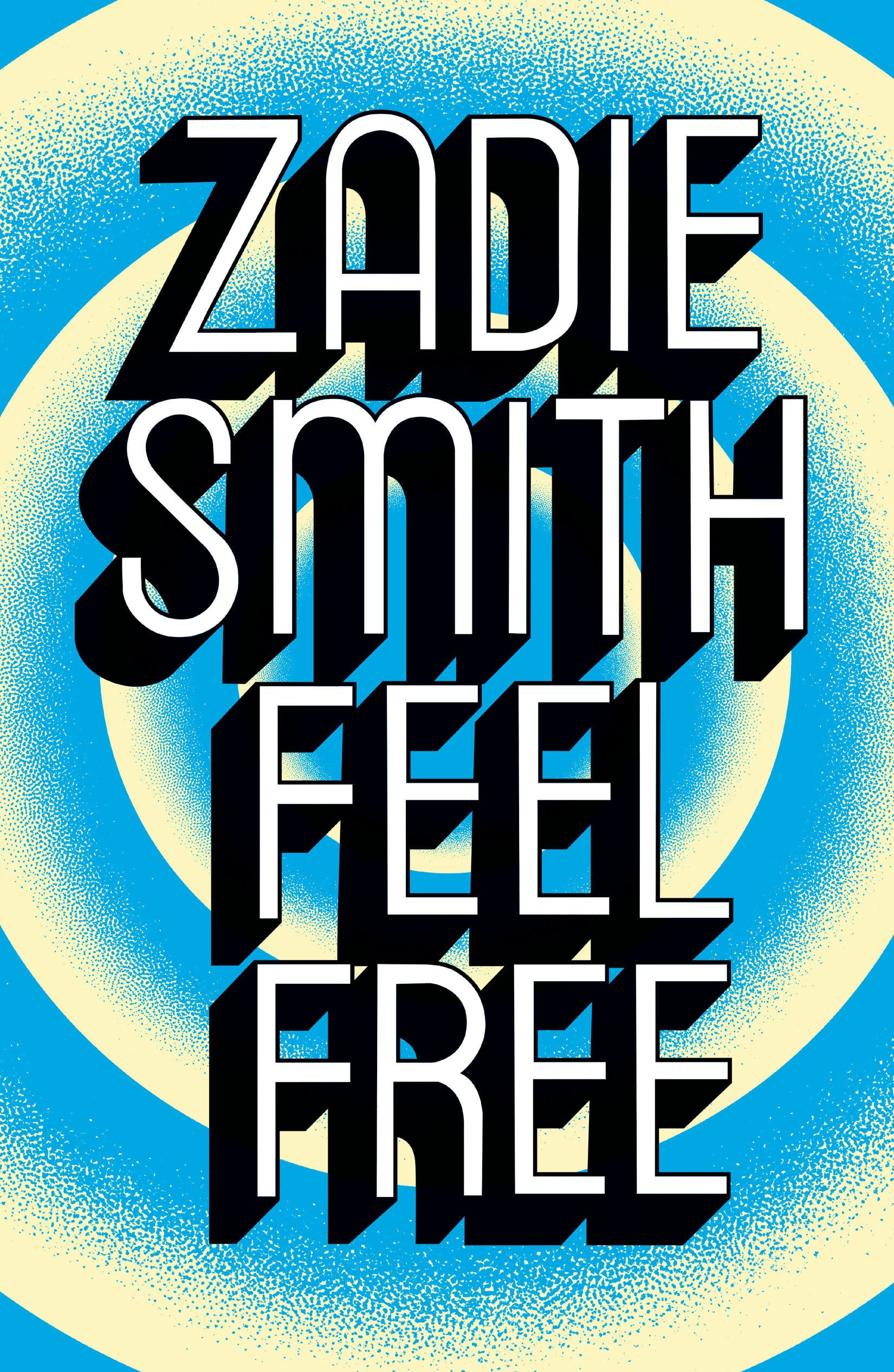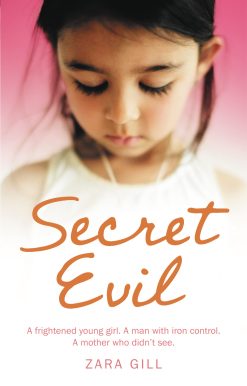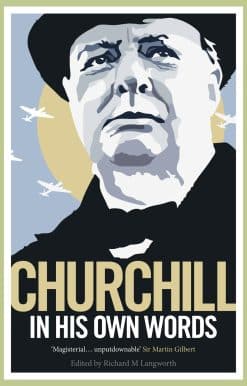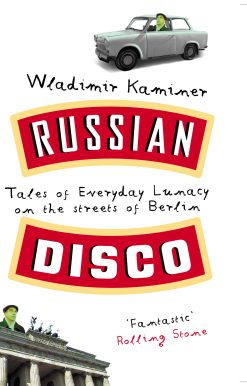No gift registry found click here to create new registry
Cart contain Gift Registry Items cannot add products
Feel Free
17.00 JOD
Please allow 2 – 5 weeks for delivery of this item
Add to Gift RegistryDescription
WINNER OF THE NATIONAL BOOK CRITICS CIRCLE AWARD, CRITICISM CATEGORYFINALIST FOR THE PEN/DIAMONSTEIN-SPIELVOGEL AWARD FOR THE ART OF THE ESSAYA NEW YORK TIMES NOTABLE BOOKA timely, powerful collection of essays from one of our sharpest minds and most sparkling stylists.How much joy can a person tolerate? How many kinds of boredom make up a life? Who owns the story of black America? Should Justin Bieber be more like Socrates? And why is there a dead art collector floating in the swimming pool? Dazzlingly insightful, explosively funny, and ever-timely, Zadie Smith is back with a second unmissable collection of essays. From German Old Masters to the new masters of East Coast rap, from social networks opening lines of communication to national referenda closing doors, Feel Free reaches out in all directions and draws back a rich feast of ideas. Here pop culture, high culture, social change, and political debate all get the Zadie Smith treatment: dissected with razor-sharp intellect, set brilliantly against the context of the utterly contemporary, and considered with a deep humanity and compassion.With the easy intimacy of a local and the piercing clarity of an outsider, Feel Free casts a sharp critical eye over the creative luminaries that have shaped our world: from J. G. Ballard to Karl Ove Knausgaard, Orson Welles to Charlie Kaufman, Joni Mitchell to Beyonce, and far beyond. And it considers the points of contact where the author herself meets this world, where the political meets the personal, and critique meets memoir. This electrifying new collection showcases Zadie Smith as a true literary powerhouse, demonstrating once again her credentials as an essential voice of her generation.
Additional information
| Weight | 0.4 kg |
|---|---|
| Dimensions | 2.49 × 13.67 × 21.32 cm |
| PubliCanadation City/Country | Canada |
| Author(s) | |
| Format | |
| language1 | |
| Pages | 480 |
| Publisher | |
| Year Published | 2019-2-5 |
| Imprint | |
| ISBN 10 | 0143192590 |
| About The Author | ZADIE SMITH is the author of the novels White Teeth, The Autograph Man, On Beauty, NW, and Swing Time, as well as a novella, The Embassy of Cambodia, three collections of essays, Changing My Mind, Feel Free, and Intimations, and a short story collection, Grand Union. She is also the editor of The Book of Other People. Zadie was elected a fellow of the Royal Society of Literature in 2002, and was listed as one of Granta's 20 Best Young British Novelists in 2003 and again in 2013. White Teeth won multiple literary awards including the James Tait Black Memorial Prize, the Whitbread First Novel Award, and the Guardian First Book Award. On Beauty was shortlisted for the Booker Prize and won the Orange Prize for Fiction, and NW was shortlisted for the Baileys Women's Prize for Fiction. Zadie Smith is currently a tenured professor of fiction at New York University and a Member of the American Academy of Arts and Letters. She is a regular contributor to The New Yorker and The New York Review of Books. |
WINNER OF THE NATIONAL BOOK CRITICS CIRCLE AWARD, CRITICISM CATEGORYFINALIST FOR THE PEN/DIAMONSTEIN-SPIELVOGEL AWARD FOR THE ART OF THE ESSAYA NEW YORK TIMES NOTABLE BOOKA VOGUE "What To Read This Spring" SELECTIONA PUBLISHERS WEEKLY "Most Anticipated Books of Spring 2018" SELECTION“Brilliant. . . . [Smith’s] new book is lively, intelligent and frequently hilarious, and proves that she’s one of the brightest minds in English literature today. . . . [Smith] engages artists on their own terms; she’s opinionated, but not judgmental. And she manages to breathe new life into well-worn topics. . . . There’s not an essay in Feel Free that’s less than engrossing. Sure, Smith is extremely intelligent, but smart authors are a dime a dozen: More importantly, she’s an elegant writer, original, big-hearted and enthusiastic.” —NPR“Smith presses down hard as a cultural critic, and the rewards are outsize.” —The New York Times “It is exquisitely pleasurable to observe Smith thinking on the page.” —The New York Times Book Review“A vital literary voice.” —The Guardian“Containing previously published essays as well as new work, this collection—Zadie Smith’s second after the brilliant Changing My Mind—includes writing on everything from Brexit to dance lessons, the library to Justin Bieber, all delivered in the trademark wry, heartfelt, incisive style readers love from this beloved author and thinker.” —The Globe and Mail“Feel Free is joy—and ferocity, sharp wit, longing, even despair.” —The Boston Globe“Tremendous, enthralling. . . . Smith, in spite of her doubts about it, demonstrates authority.” —Los Angeles Times“Throughout this diverse collection, acclaimed novelist and essayist Zadie Smith examines the meanings of freedom in many forms. . . . Living in Smith’s thoughts . . . is liberating.” —Time“I found myself re-reading the brightest of [Smith’s] sentences over and again, marveling at her humor and her brevity. . . . This collection fulfills many of our needs with its culture-spanning subject matter.” —Associated Press “Smith’s ambivalent vision of freedom is attractive because it is generous, aesthetic, and joyfully irresponsible toward a politics of purity.” —Village Voice “[Smith is] on her way to being properly dubbed ‘prolific’.” —Entertainment Weekly“In a time of speedy, furious, extreme reactions, it’s a refreshing pleasure to read prose that is so thoughtful, measured and carefully constructed. Smith writes about culture and connection with a balanced mix of respect, curiosity and intimacy.” —The Pool“Feel Free . . . reveals the broad purview of the writer’s perceptive gaze. . . . Smith is an obvious genius . . . it feels like a privilege to momentarily see art and politics and much more through her eyes.” —Bustle“Concise and [i]ncisive, Feel Free is outstanding literary journalism, where Smith comfortably surveys both the personal and the political.” —Dhaka Tribune“Smith is among the most important writers in the world today, and her position as a post-colonial novelist and an advocate for multiculturalism (or ethnic pluralism) makes her writing exemplary. . . . [Smith] makes the unfamiliar leap that theorists avoid, but which a literary person welcomes: It is like bringing profound antagonisms together and ‘watching the fun’.” —Firstpost“Earnest, funny, enthusiastic and original.” —The Spectator “Thought-provoking, it’s full of relatable comments that force you [to] think about what it means to be a global citizen.” —Fashion Quarterly“[Smith] is a great communicator of joy.” —Irish Times“Feel Free is a shepherd’s pie of nonfiction whose only through line is a writer unafraid of getting lost, because she always knows the way home.” —Vulture“Curious, humble, and wise, Smith reminds her readers once again that her nonfiction is just as powerful as her fiction.” —The Harvard Crimson“Smith’s second collection of essays brims with a wide-ranging enthusiasm. . . . The stakes are high for cultural consumers, she argues, especially if what we value is diversity. She’s comfortable diving into controversy to make that point.” —USA Today “Smith is free to focus her incisive and often wry lens on painting, novels, dance, history, technology, Mark Zuckerberg, Jay-Z, race, love, and the nature of joy itself. But make no mistake—these pieces are as relevant as can be. They are reminders of how much else there is to ponder in this world, how much else is worth our time, and how lucky we are to have Smith as our guide.” —Vanity Fair“Made up of both published and never-before-seen essays, Feel Free blends high and low culture in the way that only Zadie Smith can.” —Vogue“Iconic White Teeth and Swing Time author Smith trains her elegant critical eye on culture, politics, and herself in this essential collection.” —Harper’s Bazaar“New writing by Zadie Smith is always a cause for celebration. In this collection of essays, she considers what it means to be a global, literary, and digital citizen, with her typical unassuming candor and seemingly casual brilliance.” —Elle “A gifted essayist as well as a novelist.” —Publishers Weekly “A must-read.” —Signature “Beyond doubt, [Smith] has joined . . . the category of ‘classic English essayist’—in the vein of Hazlitt and Orwell, Virginia Woolf and Angela Carter.” —Financial Times “Zadie Smith’s second collection of essays is a treat for the mind and soul.” —The List “Each piece demonstrates Smith’s brilliance, humour and compassion.” —Elle (UK)“The author is honest, often impassioned, always sober. . . . She is never less than a formidable intellect, with an imposing command of literary and artistic canons.” —Kirkus Reviews “I found myself re-reading the brightest of these sentences over and again, marveling at her humor and her brevity.” —The Washington Post“Smith stuns once again with this collection of previously unpublished essays that discuss social media, public spaces, global issues, and more.” —Medium“No matter the subject, we’re always excited to hear what this ever brilliant writer thinks about it, because it makes us think too.” —Southern Living“Zadie Smith is as good an essayist as she is a novelist, so Feel Free promises to be a challenge and a delight.” —The Scotsman“Zadie Smith is so eager to entertain she’ll undercut a meditation on Joni Mitchell, Wordsworth, Seneca and Kierkegaard with a sausage roll gag. But you can’t just sprawl around being entertained—your participation is demanded too!” —Evening Standard“[Feel Free] will challenge us with critical cultural questions that are relevant and timely, and continue on Smith’s legacy as a significant and moving force in today’s cultural and political climate.” —Culture Vultures“Zadie Smith’s is that rare mind which hops, skips and jumps across pop culture, politics, race, fashion, gender and literature with equal nimbleness.” —Livemint “A generous volume that shares the breadth and depth of this thoughtful writer’s curiosity…. Smith is not only a penetrating and candid writer, she is also embracing. Reading these pieces can feel like a pleasant dinner conversation with a smart, open-minded friend.” —BookPage “In glowing and remarkable prose, Zadie Smith argues out the world we live in. Her approach is fierce and lucid, nuanced and definitive, witty and deeply serious, joyful and hopeful and honest. This book is a tonic that will help the reader reengage with life.” —Andrew Solomon, author of Far From the Tree and The Noonday Demon“One of the best writers of our time.” —Epeak World News“I love Smith’s ecstatic, leaping brain, and I count on her new essay collection to keep me in wise company.” —Real Simple “Zadie Smith’s new collection is characteristically brilliant. . . . Moving and packed with insightful observations, Smith’s latest collection has allowed her to shine on the bookshelves once again.” —Hong Kong Tatler“[Feel Free] is a thoughtful exploration of motherhood, politics, literature, art, pop culture and there’s no way NOT to learn something from it.” —Lisa Lucas, former Executive Director of the National Book Foundation“[Feel Free] feels blazing and whole, with the inward gravitational tug of a star. . . . Zadie Smith is a better witness of the world than almost anyone else alive, and that no matter where she takes her mind, her mind, not the subject it’s addressing, is what remains most powerful there.” —Charles Finch, National Book Critics Circle |
|
| Excerpt From Book | Brother from Another MotherThe wigs on Key & Peele are the hardest-working hairpieces in show business. Individually made, using pots of hair clearly labeled— “Short Black/Brown, Human,” “Long Black, Human”—they are destined for the heads of a dazzling array of characters: old white sportscasters and young Arab gym posers; rival Albanian/ Macedonian restaurateurs; a couple of trash-talking, church-going, African-American ladies; and the President of the United States, to name a few. Between them, Keegan-Michael Key and Jordan Peele play all these people, and more, on their hit Comedy Central sketch show, now in its fourth season. (They are also the show’s main writers and executive producers.) They eschew the haphazard whatever’s-in-the-costume-box approach—enshrined by Monty Python and still operating on Saturday Night Live (SNL)—in favor of a sleek, cinematic style. There are no fudged lines, crimes against drag, wobbling sets, or corpsing. False mustaches do not hang limply: a strain of yak hair lends them body and shape. Editing is a three-month process, if not longer. Subjects are satirized by way of precise imitation—you laugh harder because it looks like the real thing. On one occasion, a black actress, a guest star on the show, followed Key into his trailer, convinced that his wig was his actual hair. (Key—to steal a phrase from Nabokov—is “ideally bald.”) “And she wouldn’t leave until she saw me take my hair off, because she thought that I and all the other guest stars were fucking with her,” he recalled. “She ’s, like, ‘Man, that is your hair. That’s your hair. You got it done in the back like your mama would do.’ I said, ‘I promise you this is glued to my head.’ And she was squealing with delight. She was going, ‘Oh! This is crazy! This is crazy!’ She just couldn’t believe it.” Call it method comedy.The two men are physically incongruous. Key is tall, light brown, dashingly high-cheekboned and LA fit; Peele is shorter, darker, more rounded, cute like a teddy bear. Peele, who is thirty-five, wears a nineties slacker uniform of sneakers, hoodie and hipster specs. Key is fond of sharply cut jackets and shiny shirts—like an ad exec on casual Friday—and looks forty-three the way Will Smith looked forty-three, which is not much. Before he even gets near hair and makeup, Key can play black, Latino, South Asian, Native American, Arab, even Italian. He is biracial, the son of a white mother and a black father, as is Peele. But though Peele ’s phenotype is less obviously malleable—you might not guess that he ’s biracial at all— he is so convincing in voice and gesture that he makes you see what isn’t really there. His Obama impersonation is uncanny, and it’s the voice and hands, rather than the makeup lightening his skin, that allow you to forget that he looks nothing like the president. One of his most successful creations—a nightmarish, overly entitled young woman called Meegan—is an especially startling transformation: played in his own dark-brown skin, she somehow still reads as a white girl from the Jersey Shore.Between chameleonic turns, the two men appear as themselves, casually introducing their sketches or riffing on them with a cozy intimacy, as if recommending a video on YouTube, where they are wildly popular. A sketch show may seem a somewhat antique format, but it turns out that its traditional pleasures—three-minute scenes, meme-like catchphrases—dovetail neatly with online tastes. Averaging 2 million on-air viewers, Key and Peele have a huge second life online, where their visually polished, byte-size, self- contained skits—easily extracted from each twenty-two-minute episode—rack up views in the many millions. Given these numbers, it’s striking how little online animus they inspire, despite their aim to make fun of everyone—men and women, all sexualities, any subculture, race or nation—in repeated acts of equal-opportunity offending. They don’t attract anything approaching the kind of critique a sitcom like Girls seems to generate just by existing. What they get, Peele conceded, as if it were a little embarrassing, is “a lot of love.” Partly, this is the license we tend to lend to (male) clowns, but it may also be a consequence of the antic freedom inherent in sketch, which, unlike sitcom, can present many different worlds simultaneously.This creative liberty took on a physical aspect one warm LA morning in mid-November, as Key and Peele requisitioned half a suburban street in order to film two sketches in neighboring ranch houses: a domestic scene between Meegan and her lunkhead boyfriend, Andre (played by Key), and a genre spoof of the old Sidney Poitier classic Guess Who’s Coming to Dinner. “One of our bits makes you laugh? We have you, and you will back us up,” Peele suggested, during a break in filming. “And, if something offends you, you will excuse it.” Sitting at a trestle table in the overgrown back garden of “Meegan’s Home,” he was in drag, scarfing down lunch with the cast and crew, and yet—for a man wearing a full face of makeup and false eyelashes—he seemed almost anonymous among them, speaking in a whisper and gesturing not at all. On set, Peele is notably introverted, as mild and reasonable in person as he tends toward extremity when in character. Looking down at his cleavage, he murmured, “You often hear comments, as a black man, that there ’s something emasculating about putting on a dress. It may be technically true, but I’ve found it so fun. It’s not a downgrade in any way.” When Key sat down beside Peele, he, too, seemed an unlikely shock merchant, although for the opposite reason. Outgoing, exhaustingly personable, he engages frenetically with everyone: discussing fantasy football with a cameraman, rhapsodizing about the play An Octoroon with his PR person and ardently agreeing with his comedy partner about the curious demise of the short-lived TV show Freaks and Geeks (“ahead of its time”), the present sociohistorical triumph of nerd culture, and a core comic principle underpinning many of their sketches. (“It’s what we call ‘peas in a pod’: two characters who feel just as passionate about the same thing.”) |
Only logged in customers who have purchased this product may leave a review.
Related products
-
On backorder 2-5 Weeks to Arrive
Add to Gift Registry15.99 JOD -
On backorder 2-5 Weeks to Arrive
Add to Gift Registry30.00 JOD -
On backorder 2-5 Weeks to Arrive
Add to Gift Registry12.99 JOD -
On backorder 2-5 Weeks to Arrive
Add to Gift Registry9.99 JOD






Reviews
There are no reviews yet.